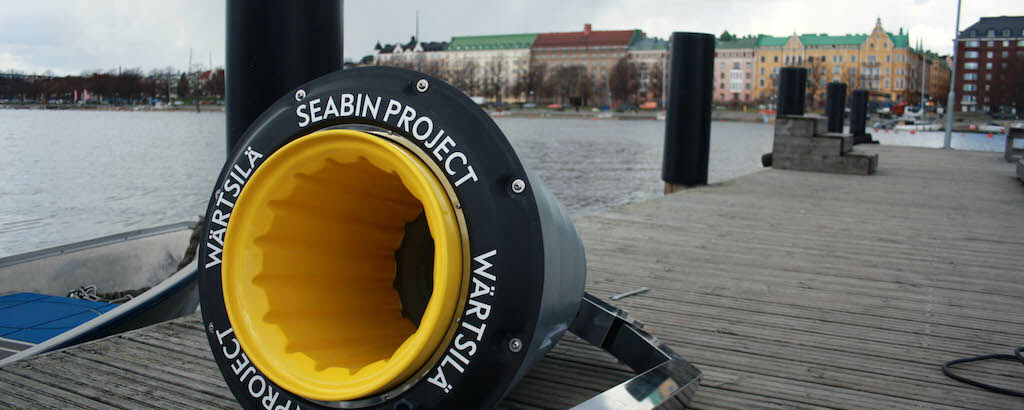An interview with Pete Ceglinski, CEO and co-founder of the Seabin Project on the challenges and opportunities we face together as a global community to solve one of the most vexing environmental issues - plastic pollution.
As an organisation tackling the complex issue of plastic pollution, in your opinion what are some of the most significant challenges?
This is my first Rodeo, so to speak. So my opinion is only from my experience in getting this startup off the ground. My opinion is that we can solve all these issues with technology efficiently, however, changing a “throw away” culture is possibly the most significant challenge that the world faces.
We can redesign plastics to be less harmful and reusable, but we will still have to address our throwaway culture. The second most significant challenge is the mentality of that “someone else will deal with it”. I think to overcome these underlying cultural issues, a greater emphasis on education of plastics is needed. This issue of ocean plastics is relatively new, and even the experts are still learning the repercussions of our actions.
What was or is your biggest challenge?
So far my most significant challenge was to reinvent myself into an “entrepreneur” with international demand for our products from over 90 countries.
The second most significant challenge was to sell an idea that increases the value of life for every living thing on the planet, and yet 95% of the population couldn’t purchase and implement the technology. It was frustrating to struggle to raise $360,000 for a product to clean up our oceans while a backpack raised over $1,000,000 (It was a great backpack though). In the end, we raised the money from donations from concerned citizens around the globe. The average donation was $7.
My understanding is that the problem starts on land and with us, what lifestyle changes are going to be the most effective in preventing plastic pollution?
Small actions will be the most significant indicator of change. Refusing single-use plastic items, demanding alternatives and taking responsibility for our actions is the way forwards. Imagine if customers demanded alternatives to single-use plastic products, why would a company keep producing items for which there is no demand? Changing demand is key to industry change.
Beyond individual behaviour change, what changes would you like to see in industrial processes, and government policies worldwide to address plastic pollution in a more meaningful way?
I would like to see non-profits and environmental agencies working in collaboration with industry. It seems that we all have similar agendas with similar outcomes and it would be a more efficient and streamlined strategy to work together instead of in opposition or having the need for vilification.
A good example is what WWF and Norwegian oil billionaire Kjell Inge Roekke have done with REV, the research expedition vessel currently being built to tackle ocean plastics and research on the high seas. It would also be great to see a more prioritised and fast-tracked process for environmental issues with Governments. If our greatest asset is the environment, it should be a priority if we want a healthy life, or to even to exist, right?
What do you think the world is going to look like as a result of the work that you do?
My view is that as humans, we like to push things to the limit and then our survival instinct kicks in. I feel that we have pushed plastics to the limit and it’s only now that we are really understanding how to use this amazing material we have created. Its almost as though plastic has been too far advanced for us to use and we are only just starting to fully understand how to handle plastics efficiently. Right now it feels like we are in a transitional period, its a pretty good indication of a better future when you see tradies at supermarkets refusing to use single-use plastic bags or when a 7-year-old gives you a lecture on the impact of plastic straws on Sea Turtles.
Given we are now, arguably, at the beginning of the Fourth Industrial Revolution, what opportunities do you see for technology to address some of the most pressing global issues?
Thanks to the internet, every day we have new information brought to us from social media and news outlets, and it’s so amazing to see how many new technologies are being developed to deal with human-made problems and also building upon existing technologies.
In saying this, technology alone will not save us from ourselves no matter how far advanced it is. What we need are educational programs designed to change our seemingly destructive culture. To answer the question, I feel that the biggest next market will be the circular economy concept for plastics, because if plastics are forever, it would be wise to reuse it you would think.
You can catch Pete Ceglinski talk more on his revolutionary new idea at TEDxAuckland 2018: Off-Piste on October 13.
